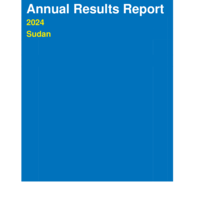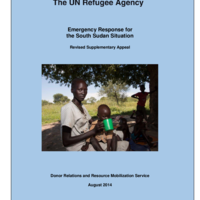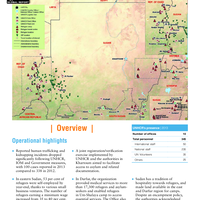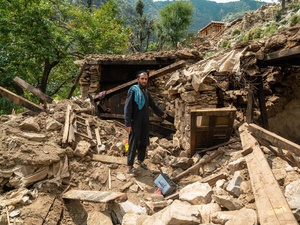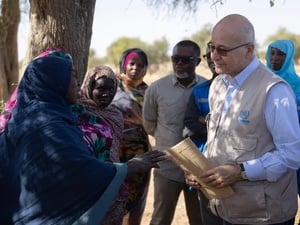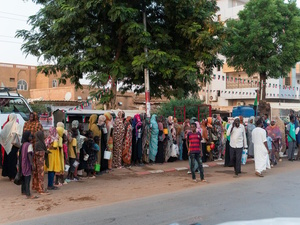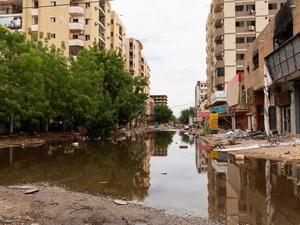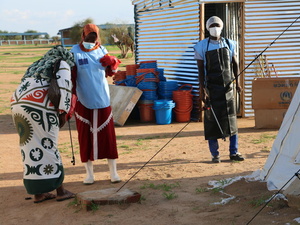Sudan
Sudan
Forced displacement within Sudan and into neighbouring countries has continued to increase since an armed conflict erupted between the Sudanese Armed Forces (SAF) and the paramilitary Rapid Support Forces (RSF) in mid-April 2023.

Sudan is experiencing one of the world’s most severe and complex humanitarian crises, driven by the escalation of conflict between the Sudanese Armed Forces (SAF) and the Rapid Support Forces (RSF), which began in April 2023.
By the end of 2024, more than 11 million people had been forcibly displaced inside the country, many multiple times – making Sudan the country with the highest number of internally displaced people globally. Over 2.7 million Sudanese have fled to neighbouring countries, including Chad, South Sudan, Egypt, Ethiopia, and the Central African Republic.
Before the current conflict, Sudan was already hosting over 1 million refugees, mainly from South Sudan, Eritrea, Ethiopia, Syria, and the Central African Republic – making it the second-largest refugee-hosting country in Africa. By the end of 2024, the total number of refugees and asylum-seekers in Sudan stood at 837,966, a 13% decline since the start of the year due to secondary displacement and cross-border movements. South Sudanese continue to represent the largest group, followed by Eritreans and Ethiopians. Over 265,000 refugees and asylum-seekers have been internally displaced by the ongoing violence, with White Nile State hosting almost half of the remaining refugee population.
The crisis has severely disrupted essential services and infrastructure. Health systems have collapsed in many areas, education has been interrupted, and food insecurity has worsened due to the breakdown of agricultural production and supply chains. Several areas of Sudan were declared at risk of famine in 2024. The economy has also deteriorated sharply, contracting by 18% in 2024, according to the IMF. Inflation, cash shortages, and a dysfunctional banking system continue to hinder humanitarian operations and deepen suffering.
Despite these immense challenges, UNHCR maintains a presence in seven states and continues to deliver life-saving assistance through direct response, cross-border operations, and remote monitoring. UNHCR is also working with neighbouring countries to respond to the growing influx of Sudanese refugees and returnees and to ensure protection and support for those fleeing the violence. As the situation remains fluid and access to many areas is restricted, flexible and sustained international support is critical to address urgent needs and lay the groundwork for longer-term solutions.
Population and financial overview
Sudan
Use the year selector to access strategy information from previous years.
Latest updates
Khartoum office closed
If you are a refugee needing assistance, please visit our Help page for more information and hotline numbers available.
Street Address:
Ahmed Kheir Street (North of Farouk Cemetery), Khartoum, Sudan
Mailing Address:
P.O. Box 2560, Khartoum, Sudan
Phone:
+249183471013
Fax:
+249183473101
Email:
[email protected]
Time zone:
GMT +3
Working hours
- Monday: 08:30 - 16:15
- Tuesday: 08:30 - 16:15
- Wednesday: 08:30 - 16:15
- Thursday: 08:30 - 16:00
- Friday: closed
- Saturday: closed
- Sunday: 08:30 - 16:15
The UNHCR Sub-Office In Kassala
Street Address:
Wali Street,, Block 12, Plot 213, Kassala, Sudan
Mailing Address:
C/o UNHCR Representation Office Khartoum, P.O. Box 2560, Khartoum, Sudan
Phone:
+249 411 829 003
Fax:
+249 411 829 001
Working hours
- Monday: 8:30 - 16:15
- Tuesday: 8:30 - 16:15
- Wednesday: 8:30 - 16:15
- Thursday: 8:30 - 16:15
- Friday: closed
- Saturday: closed
- Sunday: 8:30 - 16:15


